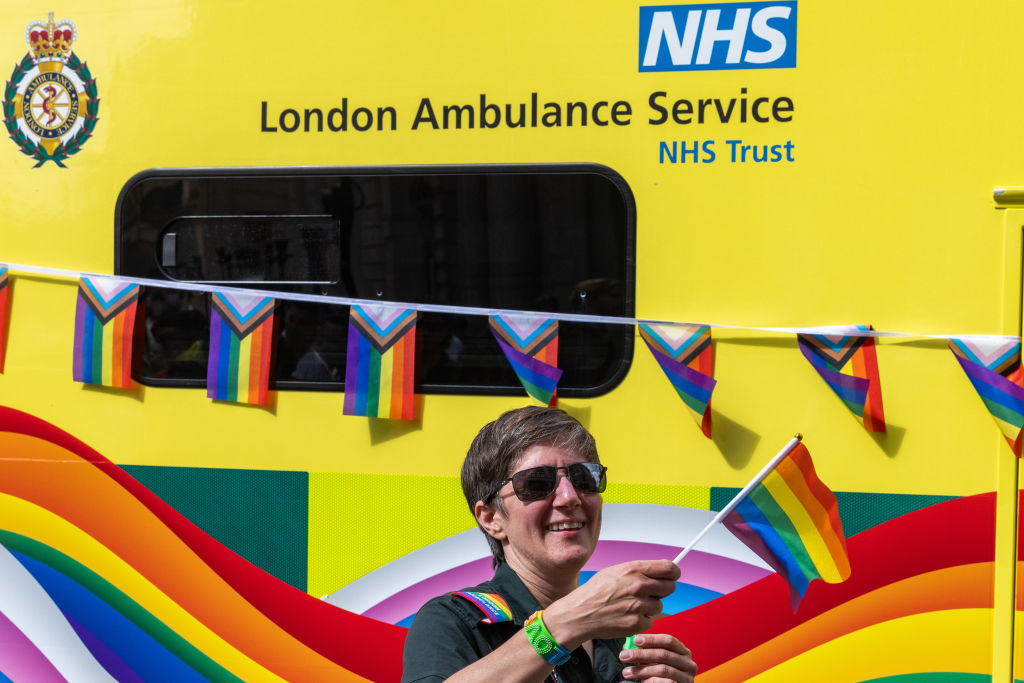The idea that overworked nurses and stretched consultants have the time to hurl racist or homophobic slurs at patients seems farcical. But given the huge sums of money wasted on diversity, equity and inclusion (DEI), clearly the NHS leadership believes there’s a problem with bigotry among its employees. Yesterday the Telegraph reported that since Labour took office in July, at least 35 new DEI jobs have been advertised within the health service, some with salaries exceeding £80,000. This is the equivalent of one every week since the election.
The progressive mania infecting the health service has not gone unnoticed. In 2023, then health secretary Steve Barclay attempted to scrap DEI roles, asking NHS leaders to “justify in public why such roles add more value than additional medical or healthcare staff”. He was ignored. Current Health Secretary Wes Streeting has echoed his predecessor’s words, demanding that the NHS tackle health inequalities rather than focusing on “pointless ideological changes”. But despite his criticism, the NHS leadership is determined to throw taxpayer money at solving a confected problem.
The lack of brazen bigotry within the NHS is somewhat inconvenient for the cadre of newly employed professionals. And so it has been necessary to widen the definitions of “-isms” and “-phobias” and lower the threshold for transgressions to give them purpose. Some NHS employees have found themselves stymied in their careers and embroiled in legal battles as a result of this ideological creep.
Amy Gallagher was a mental health nurse studying at the Tavistock and Portman NHS Foundation Trust. As part of her course, she attended a lecture where she was expected to “confront the reality of white privilege”, and another during which she was informed that “Christianity is racist because it is European.” Gallagher said she disagreed with the teaching of Critical Race Theory as fact. For daring to challenge the DEI orthodoxy, she was accused of inflicting “race-based harm” and is now suing the NHS for discrimination.
The NHS justifies DEI spending by citing health inequalities, such as the disparity in maternal mortality rates between black and white women. But how online training sessions about white privilege, pronoun badges or LGBTQ History Month posters are supposed to solve these problems remains unclear.
While bosses defend these questionable measures as vital for staff retention and patient outcomes, the reality on the front line is bleak: morale is low, waiting lists are growing, and emergency services are in crisis. It seems fair to ask: if DEI roles are so essential, why are NHS services continuing to decline?
Ultimately, the notion that NHS employees cannot be trusted to treat patients or each other fairly without constant oversight is an insult to the hardworking doctors, nurses and medical professionals who dedicate their lives to saving others. Although the responsibility for creating an inclusive and respectful culture is carried by each of them, this can only happen in workplaces where management is sufficiently engaged and interested.
Instead of leading, vain NHS bosses have surrendered to ideology, squandering public money to ease their own consciences and indulge niche interests. Hiring an army of well-paid DEI officers is nothing more than an expensive cop-out — outsourcing the job of fostering a fair workplace culture rather than taking real responsibility.











Join the discussion
Join like minded readers that support our journalism by becoming a paid subscriber
To join the discussion in the comments, become a paid subscriber.
Join like minded readers that support our journalism, read unlimited articles and enjoy other subscriber-only benefits.
Subscribe